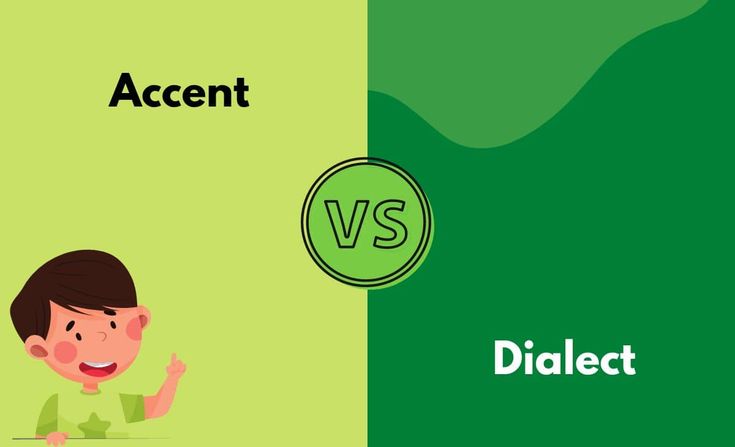The main difference between dialect vs accent lies in language features. A dialect includes its own unique words, grammar, and style of speaking, while an accent only affects how words are pronounced. School books often point out that people confuse dialect vs accent, but understanding this distinction helps students appreciate the diversity of languages. There are thousands of languages worldwide, each with numerous dialects and accents:
| Languages Worldwide | Estimated Dialects per Language | Notable Examples |
|---|---|---|
| Over 7,100 | Up to hundreds | English (160+ dialects), Spanish |
- What Is a Dialect?
- What is an Accent?
- Dialect vs. Accent: Main Differences
- Common Misconceptions
- FAQs
What Is a Dialect?
Definition
A dialect is a type of language used by certain groups. It can be spoken by people from a place or a social group. Linguists say a dialect has its own way of saying words, using grammar, and picking vocabulary. These things help us know where someone is from or what group they are in. Dialects can be from a region, like the Ozarks or Appalachia. They can also be from a social group, like a class or community. An accent only changes how words sound. A dialect changes more parts of speech. This is why dialect vs. language is important in linguistics. Dialects are seen as types of a language, not new languages.
Features
Dialects are special because they change more than just how words sound. They also change how people make sentences, pick words, and use grammar rules. Linguists study many things to tell dialects apart:
- Pronunciation: Words can sound different in each dialect.
- Vocabulary: Some words or phrases are only in certain dialects.
- Grammar: The way sentences and verbs are used can change.
- Mutual intelligibility: People who speak different dialects can often understand each other, but not always.
Note: Dialects often start when groups get separated by land or social reasons. Things like mountains, rivers, or cities can help new dialects form over time.
Examples
There are many famous dialects in English and other languages. Here are some examples of dialects from different places:
- African English dialects: Cameroon English, Nigerian English, South African English
- Oceania dialects: Australian English, New Zealand English, Fijian English
- Mixed dialects: Hinglish (Hindi-English), Singlish (Singapore English), Spanglish (Spanish-English)
| Dialect | Region | Key Features |
|---|---|---|
| American English | Americas | Strong ‘R’ sound, special words, different spelling |
| British English | Europe | ‘R’ before vowels, spelling like ‘colour’, grammar |
| Canadian English | Americas | Mixes British and American spelling, uses ‘Eh!’ |
| Australian English | Oceania | Unique way of speaking, words, and phrases |
These examples show how dialects and accents change language. Sometimes, dialects become so different that they turn into new languages. For example, Vulgar Latin split into French and Occitan. Old English dialects changed into Modern English. Regional and social factors still shape language today.
What Is an Accent?
Definition
An accent is a special way of saying words. It shows how people from different places speak the same language. An accent only changes how words sound. It does not change the words or grammar. Linguists say an accent is a style of pronunciation. It can show where someone is from or their social group. Dialects have different words and grammar, but accents only change sounds. For example, someone might say “Warsh” instead of “wash.” Or they might say “New Yawk” instead of “New York.” These changes do not change what the words mean. They only change how the words sound.
Accents and dialects are connected, but an accent is just one part of a dialect. Every dialect has its own accent. But not every accent means there is a new dialect.
How Accents Form
Accents form when people speak the same language in different ways. This happens over time. Many things can shape an accent. Where a person grows up matters. Their social class and culture also matter. When people move or meet others from new places, their accent can change. Sometimes, people keep old accent features if they live far away from others. In big cities, accents can mix together. In the countryside, accents may stay the same for a long time. Social identity is important too. People often keep their accent to show pride in their group. Linguists study accents by listening to how people say vowels and consonants. They also listen to how people stress words.
Once an accent is formed, it can be difficult to change. If you want to reduce your accent and make a strong impression in interviews, try Utell AI, a real-time accent conversion software.

Examples
There are many kinds of accents in English and other languages. The table below shows some well-known accents and their features:
| Accent Type | Region/Country | Characteristics & Features | Notable Examples/Media Figures |
|---|---|---|---|
| Cockney | London, England | Rhyming slang, dropped ‘h’ sounds | TV show “Only Fools and Horses” |
| Southern American | Southern USA | Drawl, long vowels, special way of speaking | Matthew McConaughey |
| Geordie | Newcastle, England | Strong ‘r’ sounds, special words | Ant and Dec |
| Australian | Australia | Different vowel sounds, leaves out ‘r’ at ends | Hugh Jackman |
| Indian | India | Rhythm from local languages | Virat Kohli |
| New York City | USA | Dropped ‘r’, short ‘a’ sound | Leonardo DiCaprio |
Other accents include Scottish, Welsh, Canadian, and Nigerian. Each accent has a special way of saying words. This makes it easy to know where someone is from. These examples show how accents and dialects help shape language and culture.
Dialect vs. Accent: Main Differences
Dialect vs Accent
It is important to know how dialect and accent are different. This helps people see how language changes in different places and groups. Linguists use tables to make these differences easy to see:
| Feature | Dialect | Accent |
|---|---|---|
| Pronunciation | Yes | Yes |
| Vocabulary | Yes (unique words, idioms, slang) | No |
| Grammar | Yes (sentence structure, verb forms) | No |
| Mutual Intelligibility | Usually, but not always | Always |
| Social Identity | Strong marker of group or region | Strong marker of region or background |
| Examples | American English, British English | French accent, German accent |
A dialect changes how people say words, use grammar, and pick words. An accent only changes how words sound. Both can show where someone is from or what group they are in. People use dialect and accent to talk about language, but they do not mean the same thing.
Differences Between Accents and Dialects
Accents and dialects are not just about how words sound. Here are some main points:
- Dialects change grammar, vocabulary, and pronunciation. They have special slang and idioms.
- Accents only change how words sound. They do not change grammar or vocabulary.
- Dialects can show where someone grew up or their social group.
- Accents show how someone says words and can tell you their region.
- Everyone has an accent, but not everyone uses a different dialect.
- Dialects are often not the standard way of speaking, but accents can be in both standard and non-standard speech.
- Dialects can have special ways to make sentences and use verbs. Accents only change sounds.
Tip: Listen for different words or grammar when someone talks. If you hear them, it is likely a different dialect. If only the way words sound is different, it is probably just an accent.
Why It Matters
Knowing the difference between dialect and accent helps people understand language diversity. Mutual intelligibility is important. People who speak different dialects can usually talk to each other, even if they use different words or grammar. For example, British and American English are dialects. They sound different and use some different words, but people can still talk easily. Accents only change how words sound and do not usually cause confusion.
Social and cultural things also affect how people see accents and dialects. Language can show who you are and sometimes leads to stereotypes. Studies show that people judge others by their accent or dialect. These judgments can change how people do in job interviews, make friends, or do in school. Having the same accent as others can help people feel like they belong. Having a different accent can sometimes make people feel left out.
Note: Learning about dialect and accent helps stop negative stereotypes and builds respect for all ways of speaking. Teachers and students who know these differences can talk better and enjoy language more.
People use dialect and accent to talk about language differences, but knowing what makes them different helps everyone understand and respect others. By noticing both, people can enjoy the many ways people speak around the world. To learn more, listen to people from different places and see how their language changes.
Common Misconceptions
Mixing Up Terms
A lot of people mix up “dialect” and “accent.” This mistake can make people misunderstand language and identity. Some English speakers think dialects are not very different or important. But dialects can be very different, even in towns that are close together. In the UK, people from nearby places may not understand each other well. This proves dialects are not always small or easy to ignore.
Some people believe they have “no accent,” but everyone has one. An accent shows where someone is from or their social group. Saying an accent is “good” or “bad” is just an opinion, not a fact. No accent is wrong if people can understand each other. Hearing many accents helps people be more open and better at understanding others.
Calling dialects “accents” can make social problems worse. In media and schools, this mistake can cause unfair treatment and negative ideas. For example, some accents or dialects get called less smart or less believable. This can change how people are treated at work or in class.
Social Perceptions
People often get ideas about dialects and accents from society, not from the language itself. Many think some accents sound smarter or more honest. For example, Standard American English is seen as fancy, but regional or foreign accents may seem less skilled or less nice.
- People sometimes judge others by how they talk, which can lead to being left out or treated unfairly.
- Strong accents or disliked dialects can make people feel embarrassed, upset, or alone.
- At work, people with certain accents may seem less smart, even if they speak well.
Studies show these ideas do not match real language skills. They come from social rank and culture. When people learn what dialect and accent really mean, they can help stop bias and make society more fair.
Knowing the main points about dialects and accents helps students talk clearly and respect how people speak. Dialects change words, grammar, and how words sound. Accents only change how words sound.
- Teachers can use sounds, fun activities, and real-life examples to help students see these differences.
- Using the right words for dialect and accent helps people talk better and stops confusion.
Learning about language differences with stories and history helps students understand more. Remember what makes dialects and accents different to get better at language and understand others.
FAQs
What is the main difference between a dialect and an accent?
A dialect changes words, grammar, and how people say things. An accent only changes how words sound when spoken. Dialects can have special words and ways to make sentences. Accents do not change what words mean.
Can someone have both a dialect and an accent?
Yes. People can speak a dialect and have an accent too. For example, a person from Texas might use Texan English and have a Southern accent.
Do all languages have dialects and accents?
Most languages have both dialects and accents. Big languages like English, Spanish, and Chinese have many kinds. Small languages may have fewer, but there are still some differences.
Why do people judge others by their accent or dialect?
People sometimes link accents or dialects with where someone is from or their social group. These ideas come from society, not from how well someone speaks. Judging people by speech can be unfair.
Can accents or dialects change over time?
Yes. Accents and dialects can change as people move or meet new groups. Technology can also cause changes. New words, sounds, and grammar can show up. Old ways of speaking might go away.




I’ve always thought of accents and dialects as interchangeable, but this helped me realize how much deeper dialects go, especially with grammar and vocabulary. It’s a great reminder of how language reflects not just sound, but also identity and culture.
Really insightful! It’s easy to confuse dialect and accent, but the distinction that dialects involve more than just pronunciation is a game-changer. Also, the fact that dialects can represent both geographic and social backgrounds is something I hadn’t considered much before.